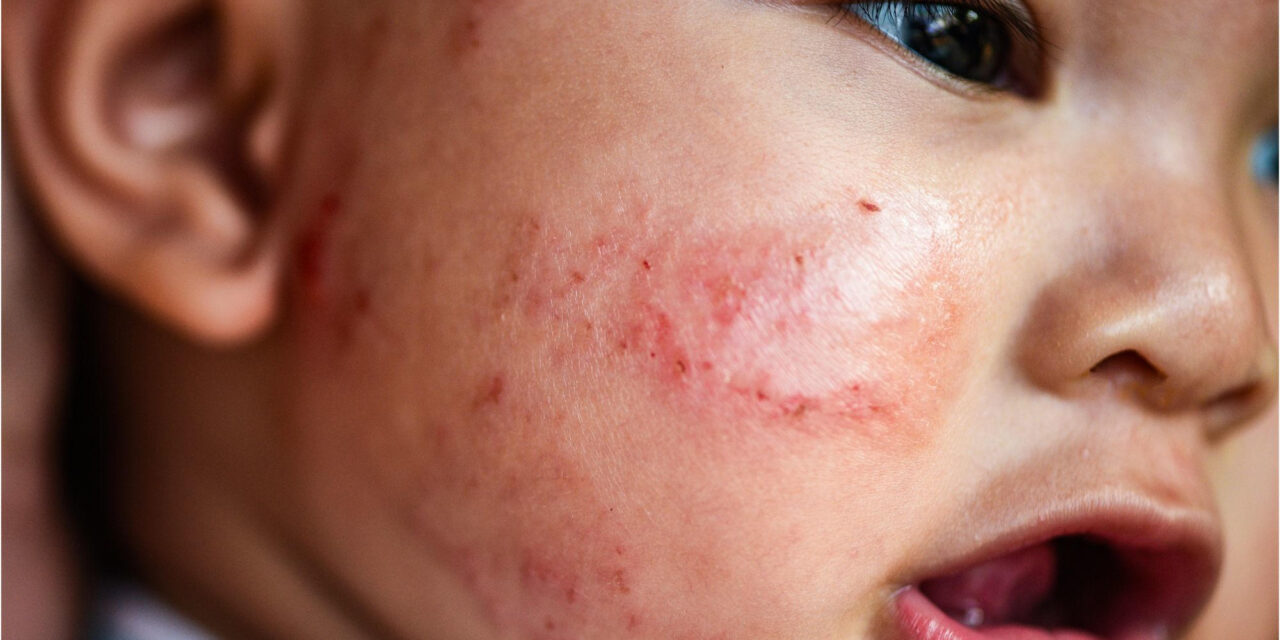Trinity College Dublin’s Multidisciplinary Team Makes Strides in Eczema Treatment
A groundbreaking study led by a multi-disciplinary team at Trinity College Dublin unveils promising prospects for combating bacteria-driven flares of eczema in children. Their research indicates that a “tailored vaccine” might be the key to addressing this common childhood affliction.
Eczema, also known as atopic dermatitis, affects a significant portion of children in Ireland, with up to one in four experiencing its discomfort. Among the most troublesome contributors to eczema exacerbations is the bacterium Staphylococcus aureus. However, current treatment options often fall short in managing these bacterial-driven flares, leading to a pressing need for innovative approaches.
Dr. Julianne Clowry, Consultant Dermatologist and lead author of the study, emphasizes the urgency for new treatment avenues. She notes that existing strategies are often limited in their efficacy, with symptoms frequently recurring even after temporary relief. Moreover, the escalating threat of antimicrobial resistance underscores the necessity for alternative solutions.
“In combination, these factors make a tailored vaccine a very attractive target,” Dr. Clowry explains. Such a vaccine could mitigate the severity of eczema, provide longer-lasting relief, reduce antibiotic dependency, and diminish the risk of complications and associated atopic diseases like hay fever and asthma.
Advancements in Vaccine Targeting
The research team, comprising experts from Trinity’s Schools of Medicine, Computer Science and Statistics, Biochemistry, and Immunology, made significant strides in understanding the immune response underlying eczema flares. By analyzing immune signatures in children with S. aureus-driven eczema flares, they identified novel cellular targets crucial for vaccine development.
In their study involving 93 children aged 0 to 16, the researchers compared immune responses across three groups: eczema with confirmed S. aureus infection, eczema without S. aureus infection, and a healthy control group. Their findings revealed substantial variations in the proportions of specific immune cells, particularly T cells, among the different groups.
Key Findings in Immune Responses
A pivotal discovery was the suppression of certain T cell populations in children experiencing infected eczema flares. These T cells, essential for orchestrating an effective immune response, were found to be compromised in individuals with bacterial-driven eczema exacerbations. These findings lay the groundwork for developing targeted therapies aimed at providing effective relief from recurrent eczema flares.
Expert Insights
Professor Alan Irvine, a leading expert in Dermatology at Trinity, underscores the significance of novel scientific approaches in unraveling the intricate relationship between S. aureus and eczema. Meanwhile, Professor Rachel McLoughlin, a prominent figure in Immunology at Trinity and senior author of the study, highlights the potential of this research to transform eczema management.
McLoughlin emphasizes the need for further research to validate these findings across diverse populations, paving the way for personalized treatment strategies. She believes that a comprehensive understanding of the immune response to S. aureus in eczema holds immense potential to revolutionize treatment approaches and significantly impact eczema management.
As the scientific community awaits further developments, this research offers a beacon of hope for children and families grappling with the challenges of eczema, heralding a new era in tailored treatment modalities.












